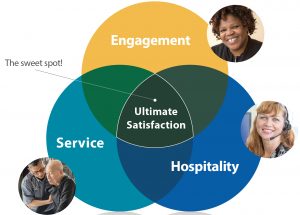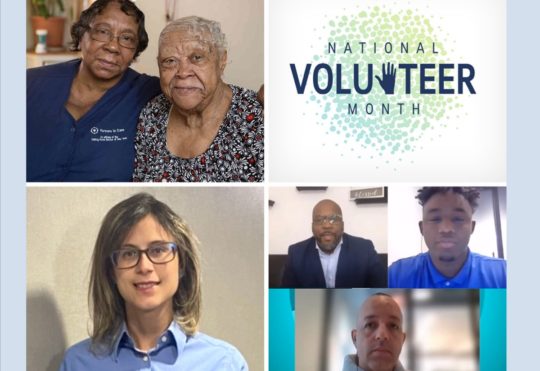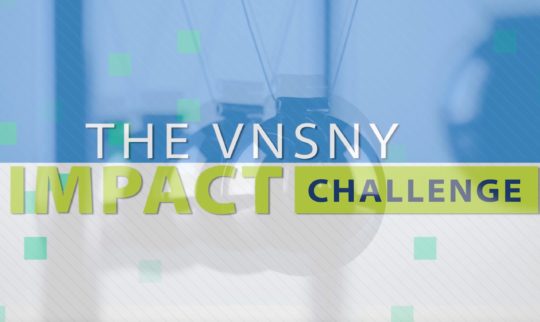Michael Bernstein, EVP and Chief Administrative Officer, on the Role of Hospitality in Health Care
 Michael Bernstein oversees a wide range of corporate functions for VNSNY, including Patient/Member Experience.
Michael Bernstein oversees a wide range of corporate functions for VNSNY, including Patient/Member Experience.
You’ve identified hospitality as a key to improving the experience of VNSNY’s patients and plan members. Can you explain this?
Whenever we’re delivering care, technical proficiency is obviously essential—but there’s another important element as well, and that’s emotion. How does the patient or plan member feel about their encounter with us? Hospitality means making our patients and members feel that we’re on their side. It’s about eliciting positive emotions by being empathetic, asking what we can do for them, and then finding ways to say “yes” instead of “no.”
Hospitality is traditionally associated with travel and entertainment. How hard will it be to extend this approach to health care?
It’s already happening. For example, a major New York City medical center just hired a hotel industry veteran as their new head of patient experience. That makes sense, because hospitality is really the missing piece of the health care puzzle. No matter how skilled a care provider is, a patient or member’s emotional feeling about the care they receive directly impacts their satisfaction levels. There’s also research indicating that people who feel well taken care of emotionally have better health outcomes, as well.
How are you implementing this approach at VNSNY?
When one of our employees goes into someone’s home or speaks with a home care patient or CHOICE health plan member over the phone, we’re asking them to place as much emphasis on the emotional interaction as they do on the medical aspect of that encounter. For this approach to work, our staff members also have to be in a good emotional place. They have to want to make our patients and members feel cared for and important. And that in turn links back to VNSNY’s management: We have to make sure our employees feel taken care of—that they’re supported by their managers, that their concerns are being heard, and that they have a good work-life balance.
Are you saying that hospitality is a strategic priority for VNSNY?
Yes. We’re interested in making this hospitality approach to patient and member care part of our employee training. We’re also integrating hospitality into our strategic goals around patient/member and employee satisfaction, and it’s playing a key role as we look to expand our patient and member experience teams. We’re fortunate that people who gravitate to health care tend to be empathetic and positive. Now we need to give them the resources to bring out those qualities on a consistent basis.
 Can you elaborate on this last point?
Can you elaborate on this last point?
The more pressure-filled your work environment is, the more challenging it is to be empathetic and an active listener. We need to equip our teams with tools—both technological and staffing-wise—so they feel comfortable managing through times when the pressure is on. Again, it comes down to our patients and members feeling that, when all is said and done, we are on their side—now, and in the future.

